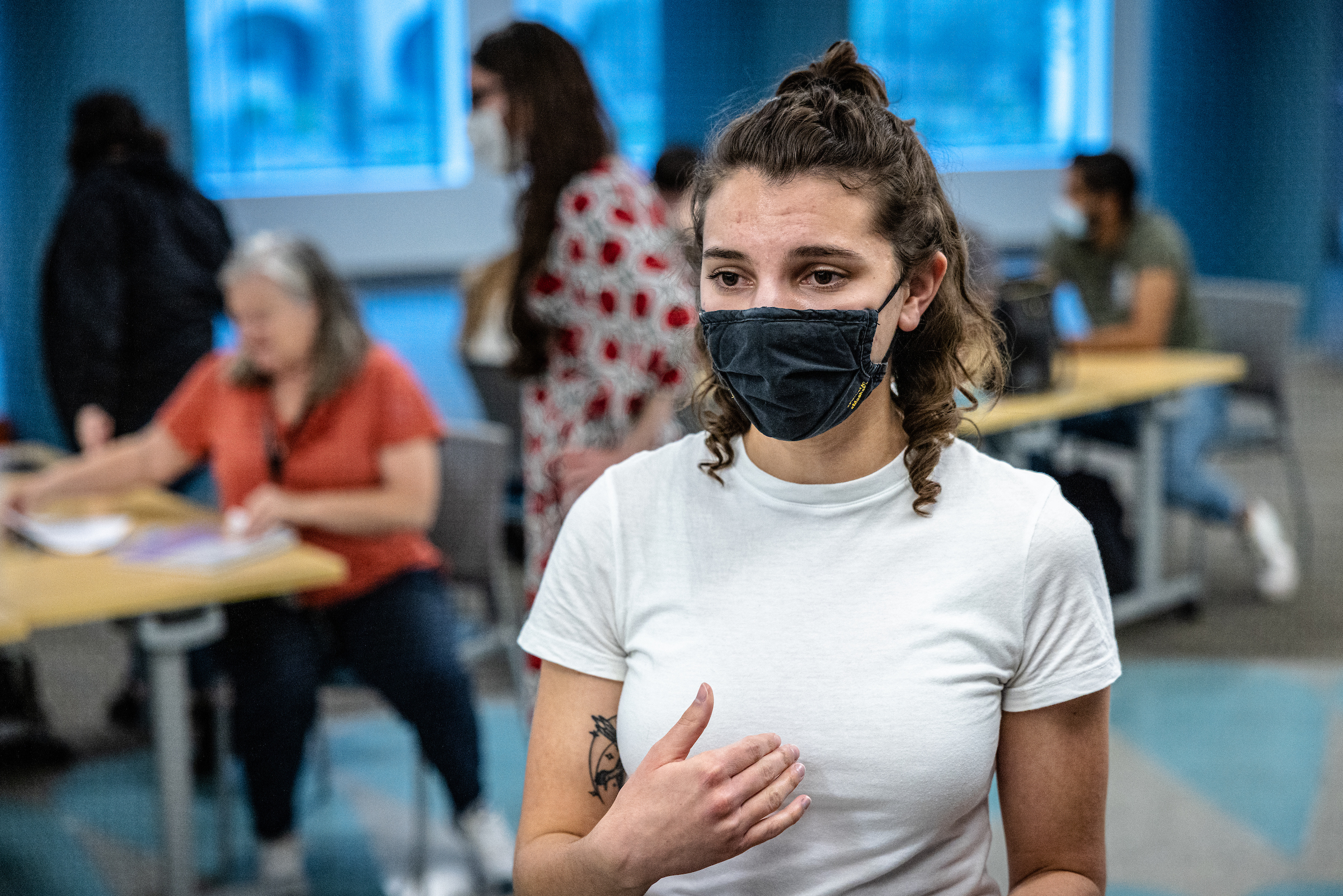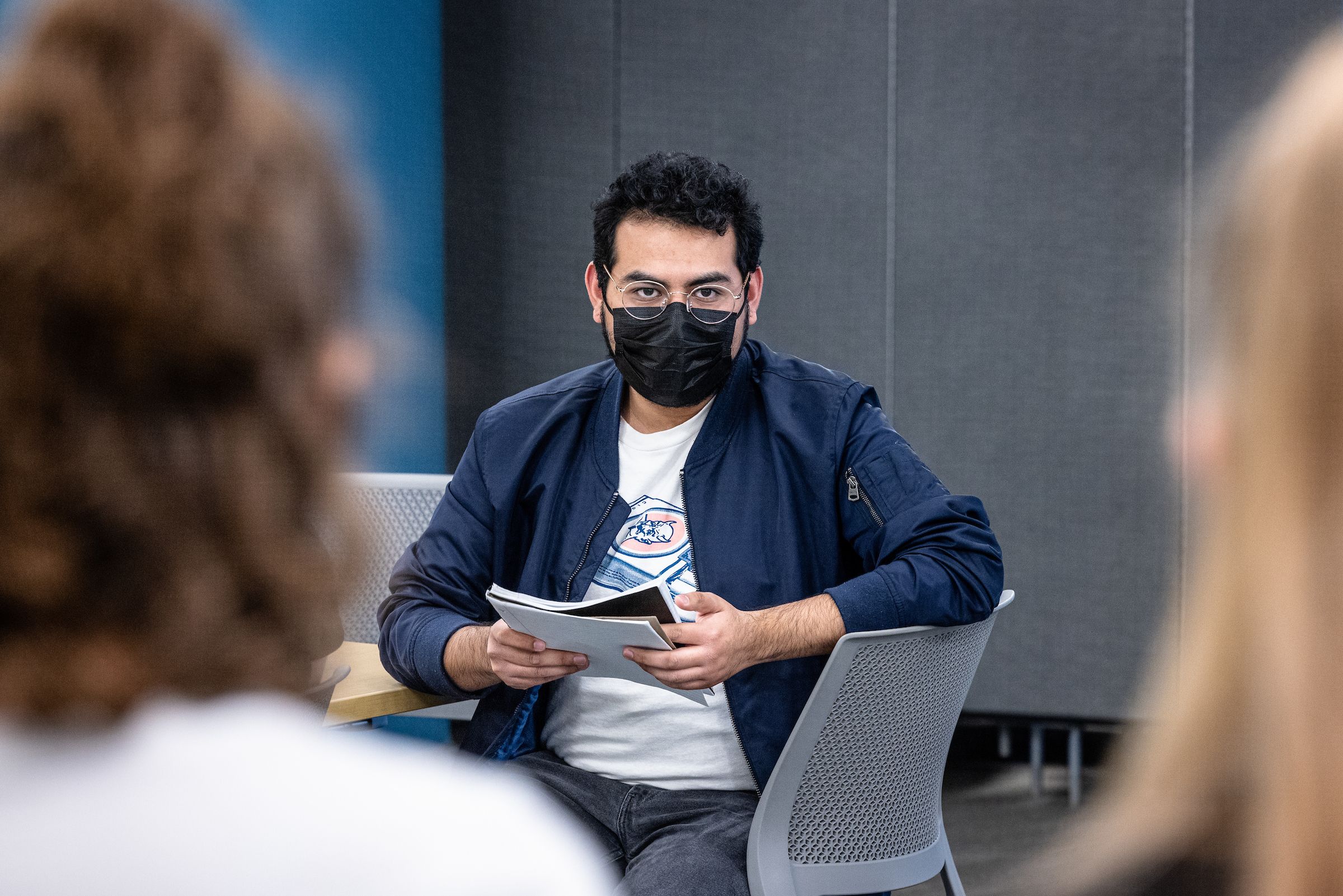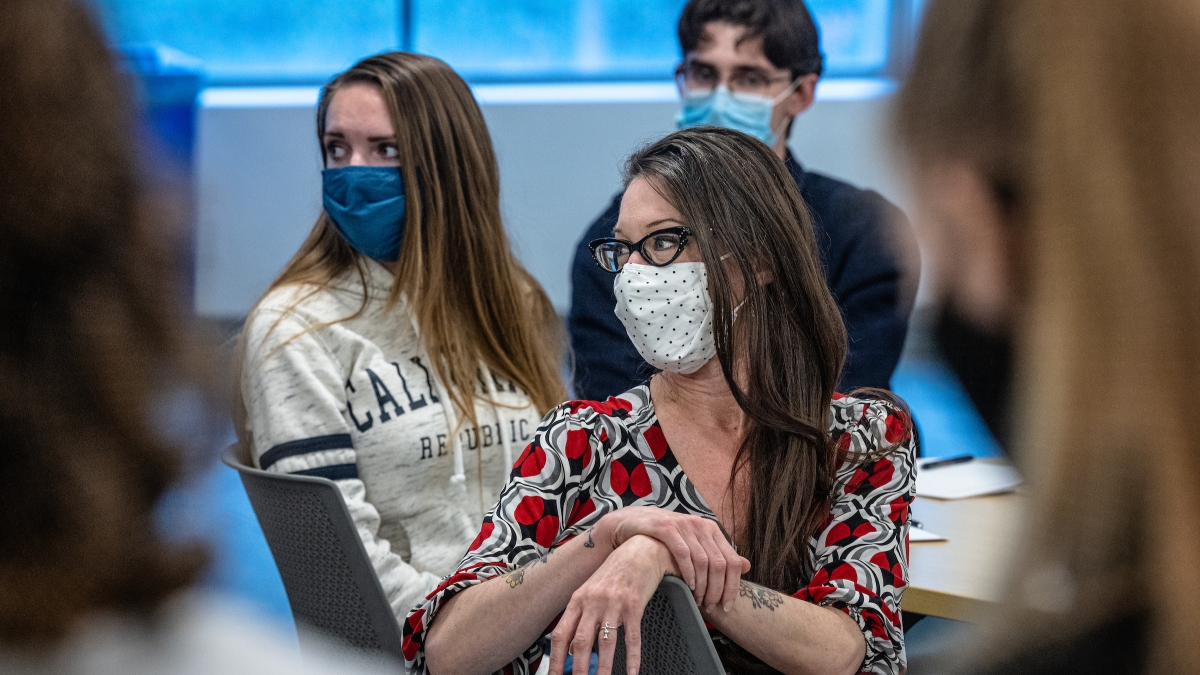Long before Walt Whitman cared for the wounded in hospitals during the Civil War, the celebrated American poet was already singing “the body electric.”
Like many of his contemporaries and those who came later — from Emily Dickinson to Sylvia Plath — he understood the connection between the body and soul; how the health of one influences the vitality of the other, so that even what one might consider mere words can have real healing power.
Whitman, Dickinson and Plath are just a few examples Arizona State University Principal Lecturer of English Rosemarie Dombrowski has at the ready should anyone dare cry, “Hokey new-age quackery” at the prospect.
In reality, Dombrowski said, bibliotherapy — a creative art therapy that involves storytelling or the reading of specific texts with the purpose of healing — has a long history in health care, and, as some of her fellow ASU colleagues can attest, plenty of sound research to back it up.
“You don’t see the disappearance of bibliotherapy until after the Enlightenment, when you began to see a split between science and the humanities,” explained Dombrowski, who is part of the College of Integrative Sciences and Arts. “Later, after the civil rights movement and America’s cultural revolution, you start to see a resurgence of this type of therapy in medicine.”
Her own discovery of bibliotherapy after years of studying literature inspired her to create a course on the subject, so that she could introduce a new generation of students to the concept.
“I wondered, how could I have gotten all these degrees in literature and this never came up in any class, the inextricable relationship between medicine and poetry?” she said.
HON 394: Poetry and Medicine walks students through the history of the relationship between the two, from antiquity to present day, and trains them in the various methods and modalities used in the facilitation of bibliotherapy, culminating in their own facilitation of a therapeutic poetry workshop. The course is offered through Barrett, The Honors College.
“My goal is to educate future providers about the myriad benefits of including poetry in their daily practice in some way,” Dombrowski said. “So, for example, when they’re sending a patient off with six pages of info about their condition, how about also including a poem? And I also want them to be able to use poetry in ways that can help them care for themselves, as providers.”

Grace Fraser, a nursing student taking Rosemarie Dombrowski's HON 394: Poetry and Medicine course, explains what she has learned about how poetry can facilitate healing at a community workshop on Nov. 30. Photo by Charlie Leight/ASU News
Having just completed its third iteration this fall 2021 semester, HON 394: Poetry and Medicine has proven very popular with students, many of whom are planning to embark on careers in the health care field.
“I hated poetry before this,” said Bailey Michaels, a medical studies undergrad who plans to become a physician. “After this class, I read it more often, but I think that what I’ve learned is going to be especially helpful in the future for my patients.”
Michaels and two other students recently led a therapeutic poetry workshop for members of the community in downtown Phoenix at Westward Ho, a former hotel-turned-affordable-housing facility for older adults and those with disabilities, where the ASU Community Collaborative has been providing free health services to residents for several years.
Dombrowski initially forged her own relationship with the facility a few years ago to give her students a space to share what they had learned with the community. The pandemic brought the in-person workshops at Westward Ho to a halt in fall 2020, so Dombrowski worked with leadership at Mirabella, ASU’s new intergenerational living and lifelong learning complex in Tempe, to arrange for her students to lead virtual workshops for their residents that semester.
This fall marked a return to the in-person workshops at Westward Ho, and the students were more than ready. During the workshop led by Michaels and fellow students Danae Mueller, a kinesiology major, and Grace Fraser, a nursing student, the trio began with an explanation of how poetry can facilitate healing.
“Through poetry … many are able to integrate … feelings, reframe traumatic events and develop a more positive outlook for the future,” their handout read.
Participants then read a few poems chosen specifically for their context, which emphasized the importance of community support in healing, and were asked to take part in some writing exercises of their own.
While not everyone shared what they wrote, one resident remarked how comforting it was just to have a space to talk and be heard.

Applied computing undergrad David Ortiz-Leon shares what he wrote during a writing exercise as part of a community-focused therapeutic poetry workshop. Photo by Charlie Leight/ASU News
Later that week, applied computing undergrad David Ortiz-Leon and his group led another workshop, this time geared toward medical practitioners at the Phoenix Biomedical Campus, thanks to a partnership Dombrowski developed with the University of Arizona College of Medicine.
The format was similar to the community-focused workshop, in that participants read poetry and took part in writing exercises, but the content was decidedly different. One poem, “Leaving Early” by Leanne O’Sullivan, expressed the affection and responsibility felt by a nurse for their patient as they turned their care over to the nurse on the next shift.
Participants were asked to think of a patient who made an impression on them and write a note to the provider who would be taking care of the patient after their shift ended.
Ortiz-Leon said that one thing he learned from the poetry and medicine course was that grief isn’t just experienced by patients and their loved ones; sometimes grief is part of being a health care provider, and putting it down on paper can be immensely helpful.
“Something Dr. Dombrowski said that stuck with me is that poetry can’t heal grief, but it can be a companion to it.”
In March 2020, Dombrowski used funds she received as part of a fellowship with the Academy of American Poets to create the nonprofit Revisionary Arts, which provides therapeutic poetry workshops to organizations and communities in need. Many of her current and former students have interned at the nonprofit, putting what they learned to use in the real world.
“I can’t revolutionize health care on my own,” Dombrowski said, “but I can do my part by inspiring these students who can.”
Top photo: ASU Principal Lecturer of English Rosemarie Dombrowski looks on as students in her HON 394: Poetry and Medicine course facilitate a community workshop. Photo by Charlie Leight/ASU News
More Health and medicine

Reducing waste in medical settings
Health care saves lives, but at what cost? Current health care practices might be creating a large carbon footprint, according to ASU Online student Dr. Michele Domico, who says a healthier…

ASU offers bilingual counseling to Spanish speakers
Arizona is one of the five states in the nation with the highest percentage of Hispanic residents, according to the U.S. Department of Health and Human Services Office of Minority Health, and …

College of Health Solutions launches first-of-its-kind diagnostics industry partnership to train the workforce of tomorrow
From 2007 to 2022, cytotechnology certification examinees diminished from 246 to 109 per year. With only 19 programs in the United States, the cytology workforce that stands at the front line of…


